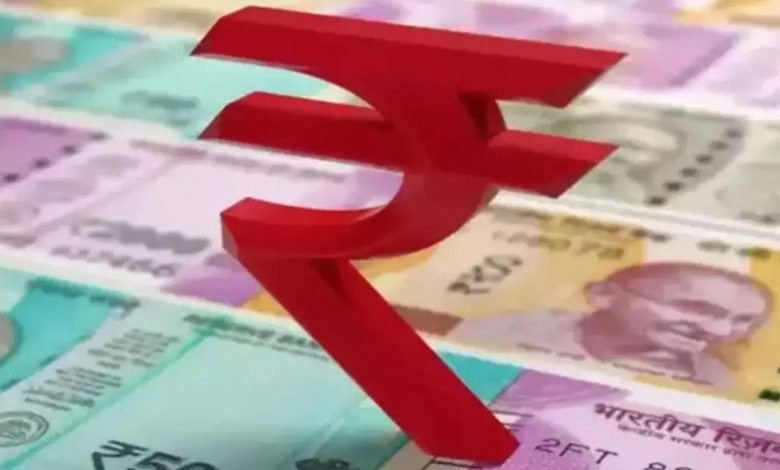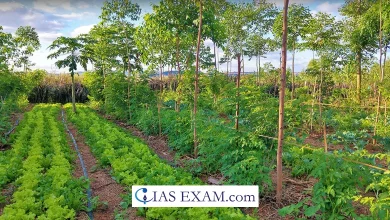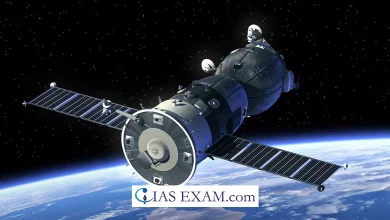Daily Current Affairs for UPSC
Special Rupee Vostro Accounts (SRVA)
Syllabus- Indian Economy [GS Paper 3]

Context- For the purpose of settling payments in rupees in connection with trade between India and Russia, twenty Russian banks have established Special Rupee Vostro Accounts (SRVA) with partner Indian banks. Additionally, in accordance with the arrangement, each of the major domestic banks has listed their nodal officers to resolve issues affecting exporters.
Key Highlights
- The Reserve Bank of India (RBI) unveiled a method to settle international transactions in rupee in July 2022 to encourage the growth of global trade, with an emphasis on exports from India, and to promote the rupee as a global currency.
- Additionally, it is anticipated to facilitate trade with Russia and other nations subject to sanctions.
- The RBI’s finalized mechanism allows authorized dealer banks in India to open special rupee vostro accounts on behalf of partner banks. The authorized dealer bank will then need to present the specifics of the arrangement to the central bank for approval.
What is SRVA arrangement?
-
- A domestic bank holds a vostro account for a foreign bank in the foreign bank’s domestic currency, in this case the rupee.
- It is used by domestic banks to provide clients with global banking requirements with international banking services.
- The SRVA is an addition to the current system that uses currencies that are freely convertible and functions as a complement to it.
- To facilitate trade, the existing systems necessitate maintaining positions and balances in currencies like the US dollar and the pound.
- Framework:
- Invoicing, the exchange rate, and settlement are the three crucial components.
- All exports and imports must be invoiced in Indian National Rupee (INR), which is required for invoicing.
- The market would decide the rate of exchange between the currencies of the trading partners.
- The final settlement is also conducted in Indian Rupees.
- Functioning:
- The correspondent banks of the partner trading nation must have SRVA accounts opened by authorized domestic dealer banks.
- When an overseas seller or supplier invoices a domestic importer for the supply of goods or services, the importer is required to pay the invoice in Indian Rupees (INR) into the correspondent bank’s SRVA account.
- In a similar vein, domestic exporters will receive payment in Indian Rupees (INR) from the balances in the designated account of the partner nation’s correspondent bank.
- Through the aforementioned Rupee Payment Mechanism, Indian exporters may receive Indian rupees as an advance payment against exports from overseas importers.
- However, the domestic bank’s top priority would be to ensure that the available funds are used to fulfill existing payment obligations, such as pending export payments or orders that have already been fulfilled.
- Under the Foreign Exchange Management Act (FEMA) of 1999, all cross-border transactions must be reported in accordance with the current guidelines.
- Bank Eligibility Requirements:
-
- When banks from partner nations approach the authorized domestic bank to inquire about opening SRVA, the apex banking regulator would request approval and provide details of the arrangement.
- It is the responsibility of domestic banks to ensure that the correspondent bank does not originate from a nation that is included on the Financial Action Task Force (FATF) list of High Risk & Non-Cooperative Jurisdictions.
- Multiple SRV accounts can be opened by authorized banks for different banks from the same country.
What is the Arrangement’s Purpose?
-
- Forex Demand Has Declined:
- The Monetary Review (2022-23) had contended that the system could generally lessen the “net interest for unfamiliar trade, for the repayment of current record related exchange streams”
- It will additionally capture the fall of rupee as interest for forex lessons.
- Forex Demand Has Declined:
- Reduced Exposure to External Stressors:
-
-
- The country’s vulnerability to external shocks would decrease if it reduced its reliance on foreign currencies.
- The rupee as a global currency:
- Once the rupee settlement mechanism gains traction, it will promote the rupee as a global currency in the long run. According to the Bureau for International Settlements’ Triennial Central Bank Survey 2022, the U.S. dollar is used in 88% of all transactions. The INR contributed 1.6%.
-
- Trade with countries that are banned:
-
- Due to payment issues, trade with Russia has been virtually stopped since sanctions were imposed on the country.
- We expect payment issues with Russia to lessen as a result of the RBI’s trade facilitation mechanism.
How does a Nostro account work?
- An account held by one bank in another bank is known as a Nostro account. Customers can use it to transfer funds from one bank’s account to another. When a bank does not have branches in a foreign country, it is frequently used. The Latin word “Nostro” means “ours.”
- Let’s assume that while bank “B” does have locations in Russia, bank “A” does not. Now, “A” will open a Nostro account with “B” in order to receive deposits in Russia.
- Now, any customers in Russia who wish to send money to account “A” can deposit it into account “B” for account “A.” The funds will be transferred to A by “B.”
- The fact that a deposit account is held by individual depositors and a Nostro account is held by foreign institutions is the primary distinction between the two.





.png)



